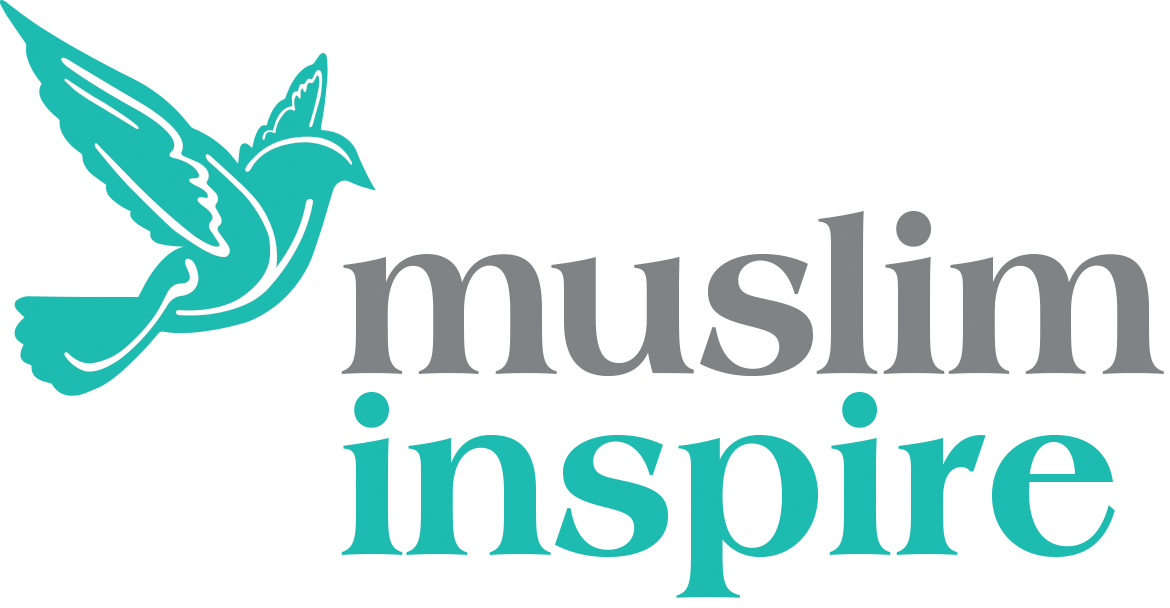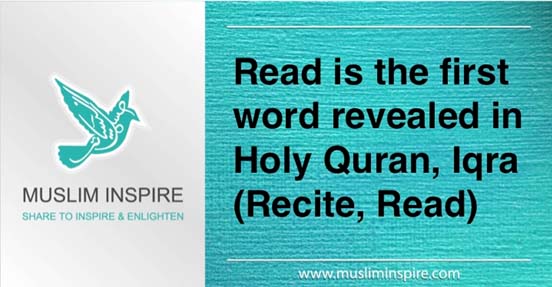The Quran stresses the importance of reading, studying, reflecting and investigating, and this is a commandment prescribed to all Muslims.
To seek knowledge is a sacred duty; it is obligatory on every Muslim, male and female. “IQRA BIISMI RABBIKA ALLAZI KHALQ”. Read! In the name of your Lord who created (all the exists). Surah Al’Alaq 96:1
The purpose of this article is to reflect on the importance of education in the process of personal development from an Islamic perspective.
The first word revealed to our Prophet Muhammad (Peace Be upon Him) from Allah SWT was “Iqra” which means to Read! To seek knowledge! Educate yourselves! Be Educated. As our Prophet (PBUH) said “TALAB UL ILMU FARIZATUN ALA KULLI MUSLIM”. Acquiring knowledge is obligatory on every Muslim, the Knowledge of Truth and Wisdom.
Reading is one of the important means of gaining knowledge and benefitting from the experiences of others, earlier and later scholars. It is something vital, which the person who wants to learn can hardly do without. It is an essential need which is hardly less important that food and drink. Individuals – let alone cultures and civilizations – cannot advance without reading, for reading brings minds to life, enlightens hearts and sets thinking straight.
Reading is a skill and an art that requires focus and concentration. Some people devote a lot of time to reading, yet despite that they gain very little as they rush.
Education and Development
Development is more than economic growth; it encompasses economic, social, cultural and political dimensions. Development focuses on improving the well-being of individuals on the basis of their participation and the fair distribution of benefits resulting from their active participation.
Education has a multidimensional impact on communities, and it is widely recognized as one of the building blocks for sustainable development, and furthermore education is instrumental in promoting equal opportunities and higher income levels amongst the entire population. Economic growth does not necessarily imply the reduction in economic inequality.
Education has been greatly emphasized in Islam, a verse of The Glorious Qur’an “IQRA BISMI RABBIKAL LAZI KHALQ“ which was revealed to Prophet Muhammad (PBUH) indicates the importance of education in Islam; the verse started with the word “IQR’A”, it is a command that means Read in Arabic, and that implies the concept of ‘learning’, ‘exploring’ and ‘seeking enlightenment’. This demonstrates that reading (knowledge) is the way to approach the Creator of all that exists. Verse 96:1-5 “IQRA BIISMI RABBIKA ALLAZI KHALAQ” “KHALAQA ALINSANA MIN AALAQIN” “IQRA WARABBUKA ALAKRAMU” “ALLAZI AALLAMA BIALQALAMI” “AALLAMA ALINSANA MA LAM YAALAM”; which states, “Read! In the name of your Lord who has created (all that exists). He has created man from a clot (a piece of thick coagulated blood). Read! And your Lord is the Most Generous. Who has taught (the writing) by the pen. He has taught man that which he knew not.”
The importance of education has been emphasised repeatedly in the Qur’an, which is the ultimate source of guidance for Muslims. Verse 20:114 says, “My Lord! Increase me in knowledge.” This verse indicates that whatever we know is limited, as we need to keep asking Allah to increase our knowledge. Therefore, a Muslim should constantly be seeking more knowledge (ilm). The Qur’an treats knowledge as a means to reaching Iman (faith) for all Muslims, males and females, to becoming true believers. This is demonstrated in the following verses: (Verse 2:269) “Allah grants wisdom to whom He pleases and to whom wisdom is granted indeed he receives an overflowing benefit.” (Verse 35:28) “Those truly fear God, among His servants, who have knowledge: for God is exalted in Might, Oft-Forgiving.” (Verse 39:9) “Are those who know equal to those who do not know? Only they will remember [who are] people of understanding.”
The Hadith of Prophet (PBUH) also emphasises the value of knowledge. As the following Hadith narrated by Abu Hurrairah notes: (Sahih Muslim: Book 12, Hadith 4005) “When a man dies, his acts come to an end, but three, recurring charity, or knowledge (by which people benefit), or a pious son, who prays for him (the deceased).”
Therefore, in the Qur’an and Hadith, the importance of education is explicit; in Islam seeking education is obligatory, and that knowledge is considered to be the path towards greater closeness to Allah.
Knowledge can be broadly divided into two types, one is the knowledge of religion, and second is the knowledge required by community. It is the duty of every parent that we should educate our children with the proper knowledge of both the types. Such as in religious knowledge which comes at first is Tawheed (believing in one God), Offering Salah (the act of prayer), Reading Holy book, fasting etc; then the second type of knowledge is the knowledge required by the community. Such as knowledge which makes a person a doctor, an engineer, a lawyer, a scientist, a teacher etc. This is required to the betterment of the community and the betterment of society. But when youare acquiring the second type of knowledge you should make sure that knowledge should take you closer to almighty God, but not to make far from.
In Islam, the duty of seeking knowledge and learning is obligatory for every Muslim. Islam affirms the right to education for all without gender discrimination. For example, in The Glorious Qur’an Verse 39:9 – the Qur’an addresses all people and indicates that people will be judged by their knowledge and understanding.
Furthermore the principles of charity in Islam offer a way through which Muslims can support education programs that will empower the disadvantaged section of society. Waqf, apart from zakat and sadaqah, is one way that Muslims engage in ongoing charity. Waqf can be in the form of paying for or declaring a building or land as a communal space, with schools and training centres falling within this category.
Islam has a holistic view of human development, which views education and knowledge as central. Islam encourages the acquisition of knowledge and its use for the benefit of humanity. Furthermore, the principles of justice, equality and equity are important in Islam; by extension this entails acquiring knowledge, wisdom and skills to carry out one’s duties. While knowledge is needed to fulfill religious and spiritual responsibilities, it is also highly important for achieving social and economic development, for wellbeing of the community, and for ensuring social harmony, freedom and human rights.
In Islam, the act of learning itself is considered an act of worship, provided that it is within Allah’s limits and with a good motive behind it.

